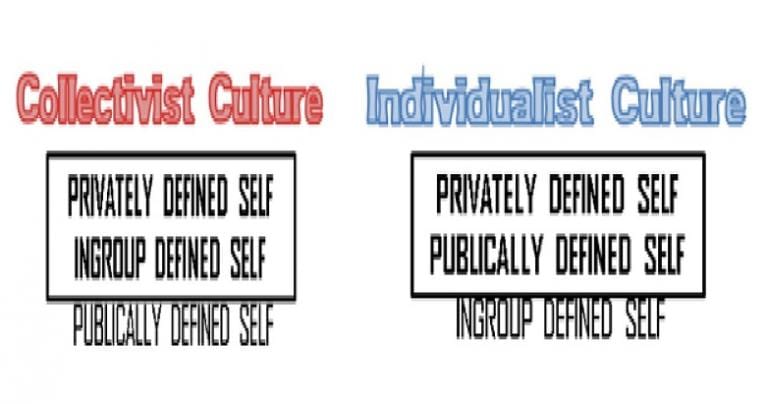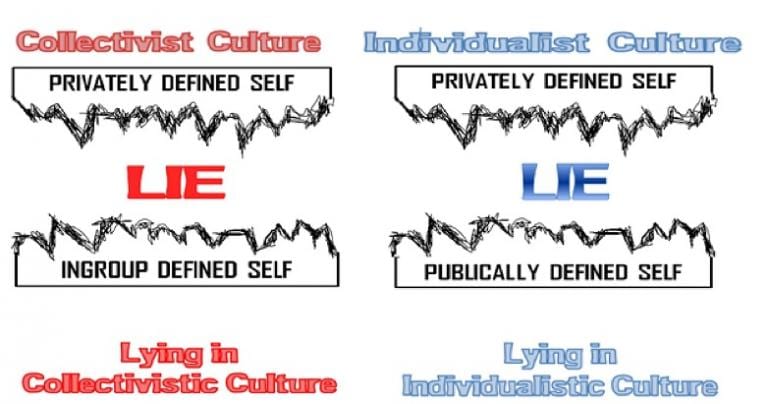
Self to Jesus Meant?—Inappropriate questions about Jesus’ self-consciousness are generated by Western ethnocentrism.
Self, as in know thyself, is of interest as far as Jesus goes. How would you address Jesus’ self-knowledge? Inappropriate behavior among Western Christians abounds due to anachronism and ethnocentrism. As we have explored elsewhere, anachronism means trying to force-fit the Scriptures and Jesus into our historical situation. Generally speaking, anachronism is attributing any custom, event, or object into a time period to which it does not belong. Ethnocentrism means evaluating other cultures from one’s own culture’s values, customs, and standards. In Bible reading, it disrespectfully force-fits Jesus and the Scriptures into the reader’s social system.
Behold, ethnocentrism at work among American bible readers—Jesus had a definite view of himself, didn’t he? Therefore we must ask: WHAT did Jesus think about himself? Did he know that he was God? And did he know that he was the Messiah? Did he choose, and live out, his own identity? And did he have his own conscious and chosen agenda? Was his mission defined by his self-understanding? Are these questions appropriate to ask of Jesus? Or are they inappropriate?
Many scholars have researched these questions. Many have done so naively. They act like we can perform a psychological inquiry on Jesus. But what psychological texts are there in the Gospels? If none, then none.
Inappropriate Reading VS Culturally Plausible Reading
Richard Rohrbaugh explains that the idea that Jesus had a definite view of himself is taken for granted by virtually all Western scholars. This assumption remains unquestioned and unexamined—with the exception, mainly, of the Context Group of Biblical Scholars like Rohrbaugh.
Why this inappropriate universal assumption among Western researchers of the historical Jesus (and also theologians)? Rohrbaugh believes it is due to the fact that Western people, the most individualistic and introspective personalities of all time, believe self-understanding to be a human essential. So strongly have we been enculturated and socialized in this way that it is nearly impossible to conceive of a human without this “essential” quality.
What is the “Self”?
“Self” is not a universal. Therefore, our Western perception about the matter of self-understanding, like Western personalities, being found in humans in every culture, is inappropriate and wrong. “Self” is a cultural construct, says Rohrbaugh, expressed quite differently by different cultures. Social scientists such as Edward Stewart and Milton Bennett have shown that societies differ greatly about what it means to be a human self.
Rohrbaugh explains that various societies exist along a continuum concerning wildly differing views on the “self.” On one extreme we find the individualistic societies, where each person is recognized and celebrated as a bounded center of awareness, an emotional, motivational and cognitive universe set apart from all others. One requires access to the psychological makeup of an individual in order to understand someone in these societies.
But at the other end of the continuum of cultural views of “self” lie the collectivistic societies. Persons there share a group-self and a group-consciousness. Rohrbaugh explains that so embedded into groups are individuals from these societies that group and individual are largely co-extensive. This is true psychologically and in every aspect of their lives. Jesus originates in this kind of society.
American Christians—like all Americans—are at the far end of the spectrum, the most individualistic. All biblical peoples, including Jesus, like all ancient Mediterraneans, are at the far opposite end, collectivistic. The boxes in the image below show what must be in conformity for perceived integrity. For Collectivists like Jesus, you can have a public face for outsiders to your ingroup, but any “privite” life you have is shared with your group-self (ingroup defined).

What is the Biblical “Self”?
What does “self” mean to a first century Mediterranean or MENA (Middle Eastern North African) Personality like Jesus? Definitely not what “self” means to a 21st century Western person! For instance, we have been told that Jesus instructs us to “die to self.” But what does that mean? What is self-denial to Jesus? And what is the self we lose? And what is the self we find? For there to be any coherence or intelligibility to our Lord’s words, “self” must be read respectfully in ancient Mediterranean cultural perspectives, and not according to American individualism and its values. Anything else is disrespectful, an inappropriate distortion.
Whatever the Lukan Jesus MEANT in Luke 9:23 is definitely not what you and I mean by “denying the self.” As explained above, “self” means different things to different cultures. To a dyadic, collectivistic personality (like Jesus, his Galilean mostly-peasant audience, the elite scribe known as “Luke,” and the Lukan Jesus group hearing/reading this), self = GROUP-SELF. Whereas to us Western people, “self” or “I” is an emotional and cognitive universe set apart from all others. That means—to us Western individualists—the INDIVIDUAL-self, your INTROSPECTIVE-self.
But MENA Jesus could not mean die to your INDIVIDUAL-and-introspective self. MENA personalities are ANTI-INTROSPECTIVE. To say otherwise is inappropriate.
“Self” Denial?
So what does it mean? Following Context Group scholar John Pilch’s lead, we see in the Synoptic “triple tradition” (Mark 8:34; Matthew 16:24; Luke 9:23), Jesus’ statement is constructed thus:
A – follow me;
B – deny oneself;
Bⁱ – take up your cross;
Aⁱ – follow me.
Pilch shows that phrases A and Aⁱ are synonymous. The same with B and Bⁱ. So, Pilch illustrates, that means to “take up one’s cross” must be the same thing as to “deny oneself.” That makes sense, yes?
We find this “taking up one’s cross” in the Jesus Tradition, specifically in “Q,” a source used by “Matthew” and “Luke” but not in “Mark” (Matthew 10:34-38; Luke 14:25-27). Here the association of “taking up one’s cross” is denying one’s family, kin, or most related ingroup. Pilch explains that should a discerning Gospel reader carefully examine this cluster of matching passages, he or she will be informed that taking up one’s cross equals denying oneself (triple tradition). This then is equivalent to denying one’s family (group) or kin-group (double tradition). In other words, to the Mediterranean authors of the Gospels, and to Jesus, “self” always means GROUP-SELF.
Crosscultural specialists like Rohrbaugh and Pilch stress the contrast between Mediterranean (biblical) and Western (e.g., American Christian) notions about personality and the “self.” This information isn’t trivial. We need to know this difference if we are to make HEADS or TAILS of what Jesus is intending to say, my friends!
Self VS Self
Rohrbaugh and Pilch show that our 21st century Western culture is an engine for individualism. Here Christians have been enculturated for it. We are self-reliant. Westerners cherish independence from others. We reward personal competence. “Pull your+SELF up by the bootstraps!”
How different Jesus is! This Middle Easterner hails from a culture that is mostly unchanged in four millennia. In the biblical world the primary focus is family (GROUP-ORIENTED). Identity is forged according to the family (i.e., GROUP-IDENTITY). There you are known as your father’s son, embedded into the patriarch as it were. There is no essential in life that does not come from the all-important group or family. If something must be achieved, it can only come by way of coalition. Personal initiative is inconceivable.
But when a Western Christian hears Jesus’ exhorting people to “take up one’s cross” and “deny one’s self,” what do you think he or she takes that to mean? Pilch says generally this would be understood as an encouragement to begin a personal and individual project of asceticism and penitential actions, a transformation of one’s INDIVIDUAL self. But not so Mediterraneans like Jesus’ disciples or Francis of Assisi. When these personalities hear Jesus, they sever ties with blood relatives and attempt joining another group! For MENA personalities like Jesus and Mediterraneans like St. Francis—collectivists—human existence is impossible without being embedded in a group! You cannot live apart from a group!
Denying the Group Self
As we will see with this upcoming Sunday’s Gospel, Jesus denied his “self” or died to his “self” like Francis would over a thousand years later, by leaving his family and village (Mark 1:38). Doing that, like Francis, Jesus shamefully rejected his ascribed honor given him by birth (Mark 6:1-6). Therefore he had died to his Nazareth-self, his group-self, much the same way Francis would later die to his own family, his Assisi-self. Jesus and Francis, in effect, became new persons.
First Jesus was embedded into John the Baptist’s coalition, his new group-self. But soon John died. So Jesus summoned twelve followers into a new group self, a political coalition (Mark 3:13-19). In doing that, Jesus had created a new fictive family group—a new self-identity!—around his person. He rose into a NEW self. He therefore redefines family—“Whoever does the will of God is my brother, and sister, and mother” (Mark 3:31-35). Like any group personality collectivist, anti-introspective Jesus needed the group-self and group-consciousness to inform him as to who he was. What Jesus asks his followers (and alter-egos) in Mark 8:27-30 are him attempting to discover who he is, meaning his new honor status within his new ingroup!
“Who Do YOU (ALL) Say that I Am?”
Consider Mark 8:27-30, with its parallels Matthew 16:13-20 and Luke 9:18-21. Do note that “Mark” was written prior to both “Matthew” and “Luke” and that these later documents could not have been written without “Mark.” Also not the additions “Matthew” gives to what he borrowed from “Mark!” More on that in a later post.
Almost universally, the Western interpretation of these Synoptic passages is that Jesus is theologically quizzing his followers. In other words, Jesus clearly knows himself, understands who he is, and tests his followers if they do. Western scholars, theologians, and homilists see this as Jesus testing the Twelve. Thus far in the Synoptic narrative (which comes from “Mark”), they have failed to identify him correctly. Peter exclaims in partial understanding Jesus to be the Messiah. Therefore, as Rohrbaugh explains, Western readers take this to be “a climactic confessional moment in the Gospel narrative.”
But Rohrbaugh reminds us this is all Western ethnocentric distortion—inappropriate. We must keep in mind the “IN” of incarnation and inspiration! INTO what? Jesus is a collectivistic personality, socialized and enculturated INTO a society that produces such. Therefore we cannot assume that Jesus possesses Western, psychological, private self-knowledge. Likewise it would be wrong and inappropriate to think the Synoptic Jesus is attempting to discover whether the Twelve understanding him rightly. So too it would incorrect and inappropriate to assume that Jesus is trying to provoke his followers into recognizing who he really is.
The Right Reading
How do we understand this spuriously familiar story then in a way that is not inappropriate? According to Rohrbaugh and friends, uncomfortable though it might be, we have to accept that Jesus does not know who he is. Should he desire to know, then, he must ask significant others from his ingroup, embedded as they are, together.
Rohrbaugh, Pilch, and friends invite us to take careful note of the questions Jesus asks his followers in Mark 8:27-29. First he asks, “Who do the people say I am?” Rohrbaugh explains that this inquiry concerns his public self. And the answers they respond? They appropriately originate from public—all honorable answers, and all incorrect. By the way, Jesus is fine with that! But that’s okay, because in the collectivistic world of the Bible, you don’t owe truth to outsiders, only INSIDERS = those of your INGROUP = your group-self. Biblical lying is different than American lying.

Next Jesus asks, “Who do you say that I am?” Rohrbaugh says this inquiry concerns Jesus’ in-group self. Since the ingroup determines who a person is in the cultural world of the Bible (self = groupself), determining who you are by how your ingroup defines you is paramount. Jesus CANNOT give this answer! The answer cannot originate from him! It must come from his ingroup. Rohrbaugh notes that in either answer stereotypical roles are suggested. Nothing is said about personal choices or individualistic qualities that set Jesus apart from others!
So what is Mark 8:27-30 and its parallels really? It’s an anecdote where MENA personality Jesus inquires from his ingroup, the Jesus Movement, about both his public self and his ingroup self. To be more precise following Rohrbaugh, the story has Jesus contrasting his newly emerging public self (who do people say that I am?) and ingroup self (who do you say that I am?). The Gospels—the whole Bible, really—was not written for, by, or about Western introspective individualists. Therefore don’t go looking in it for any talk about the private self of Jesus. It is nowhere to be found!—except when Western Bible readers project it into their readings.
Bible Readers Beware!
Ultimately, because it is 1) unanswerable and 2) culturally ethnocentric, any questions Westerners have concerning Jesus’ private self are inappropriate. Only Western, psychological, introspective individualists ask such questions!
What do Rohrbaugh and Pilch consider legitimate questions about Jesus? The ones dealing with groups. What was Jesus’ ingroup, into which he was embedded? What did this group-self think of him? How did Jesus embody and defend the goals of this group-self? Since he had detached from his first group-self (his biological family at Nazareth), how did he find new collectivist identities, first with John, and then with his own political faction (the Jesus Movement)? These would be legitimate because they presume his collectivist personality. Any other understanding of the historical Jesus (e.g., rugged individualists) are inappropriate and impossible. Stop making Jesus your idealized autobiography, Western Christians!
There exists a tremendous and substantial difference between Western personalities and Mediterranean biblical persons like Jesus. If you really love Jesus, you will respect him, and work hard not to turn him Western. Bible readers dare not overlook these crucial distinctions.












